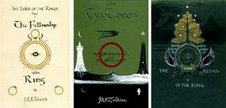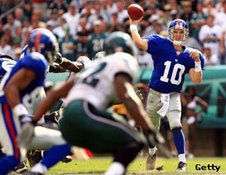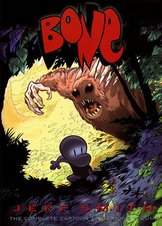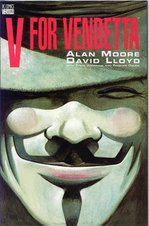Tuesday, October 03, 2006
RPGs
I love video games but a lack of broad band connection and an almost non-existent interest in Dungeons and Dragons-type games has limited my appreciation for RPGs (Role Playing Games). To remedy this, to expand my knowledge, to connect with one more student faction, and to have a 506 project, I intend to participate in two online RPGs. One is a Star Wars MUD and the other is RUNESCAPE. Both allow the player to write to other players during the game. The MUD seems to be like a choose-your-own-story book, but with other players interacting with you (weird, and exciting). RUNESCAPE, has numerous worlds with preset stories. Both are free and easy to sign on too. I know very little about these games at this point other than they are very popular. If anyone has tips for beginners (especially for the MUD), I would greatly appreciate them. If you don't have tips, you can still make comments.
Monday, October 02, 2006
What Does Reading Look Like, Anyway?
In “What Does Reading Look Like, Anyway?”, Kajder addresses the importance of including students in what she calls the “literacy club” by acknowledging literacy outside the traditional. She raises an interesting point: students do not believe untraditional literacy counts. I have observed this through the comments on my psmonline post. Does this mean that video games, graphic novels, film, photography, and other internet-related literacy are not as important as traditional literacy? Or, have students been incorrectly convinced, by teachers and parents who were taught traditional literacy, that traditional literacy is the only literacy worth teaching? Kajder’s definition of literacy is right on: “literacy is using the most powerful cultural tools to communicate our understandings.” Her definition does not exclude traditional literacy; in fact, it still makes traditional reading and writing the most powerful cultural tool. However, it is no longer the only powerful cultural tool for communicating. Untraditional literacy is being developed outside of school. Teacher’s need to get students to see that what they are doing with untraditional literacy (analyzing) is what teachers want them to do with in-school literacy. Providing a place for both untraditional and traditional literacy can help students to become confidant, interested, and successful in the most powerful literacy, reading and writing.
Subscribe to:
Comments (Atom)


The Giants will go as far as Eli takes them.




